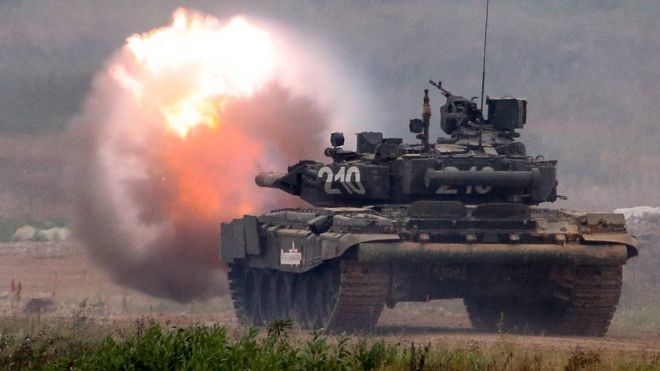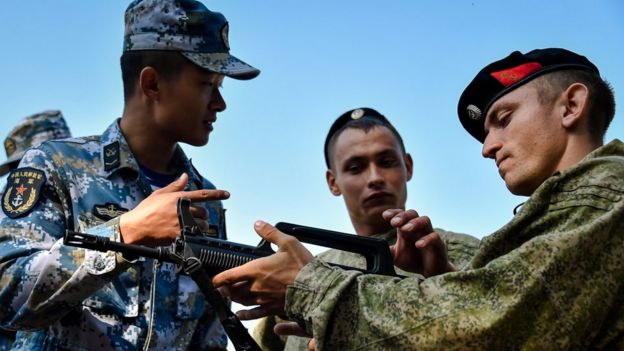Russia gears up for biggest war games since Cold War
Preparations are under way for
Russia's biggest military exercise since the Cold War, involving about
300,000 service personnel, in eastern Siberia.
China is sending
3,200 troops to take part in "Vostok-2018", with many Chinese armoured
vehicles and aircraft. Mongolia is also sending some units.The last Russian exercise of similar scale was in 1981, during the Cold War but Vostok-2018 involves more troops.
It comes at a time of heightened Nato-Russia tensions.
Relations between Russia and the North Atlantic Treaty Organisation (Nato) - a 29-member defence alliance dominated by the US - have worsened since Russia annexed Crimea from Ukraine in 2014.
Kremlin spokesman Dmitry Peskov said the drills were justified given "aggressive and unfriendly" attitudes towards Russia.
Tuesday and Wednesday will see planning and preparation while actual operations will start on Thursday and last five days, the head of the Russian general staff, Army General Valery Gerasimov, was quoted as saying by Interfax news agency.
The Russian defence ministry says 36,000 tanks, armoured personnel carriers and armoured infantry vehicles will take part in Vostok-2018, from 11 to 17 September, along with more than 1,000 aircraft. Vostok is Russian for east.
The exercise will be spread across five army training grounds, four airbases and areas in the Sea of Japan, Bering Straits and Sea of Okhotsk. Up to 80 naval vessels will take part, from two Russian fleets.
The drills will not be near the disputed Kuril islands north of Japan, Russia says.
The ministry's TV channel Zvezda says three brigades of Russian paratroops will play a key role, during drills at the Tsugol military range, near Russia's borders with China and Mongolia.
A key aim is to practise the rapid deployment of thousands of troops, as well as aircraft and vehicles, from western Russia to eastern regions, across thousands of miles, TV Zvezda reports. That involves in-flight refuelling of fighter jets.
The scale of Vostok-2018 is equivalent to the forces deployed in one of the big World War Two battles.
A smaller-scale Russia-Belarus exercise was held last year.
President Vladimir Putin has made military modernisation - including new nuclear missiles - a priority.
Russia's armed forces are reckoned to have about one million personnel in total.
A Russian senator and reserve colonel, Frants Klintsevich, said "it suited the West that our units and headquarters lacked combat skills and co-ordination, but times have changed; now we have a different attitude to combat readiness".
The Chinese defence ministry spoke of deepening military co-operation and "enhancing both sides' capabilities to jointly respond to various security threats", without specifying those threats.
The ministry confirmed the extent of the Chinese involvement: "3,200 troops, more than 900 pieces of military hardware as well as 30 fixed-wing aircraft and helicopters".
Mongolia has not given details of its involvement.
Russian Defence Minister Sergei Shoigu says Islamist extremism in Central Asia is a major threat to Russian security.
China has imposed heavy security and censorship in the mainly Muslim Xinjiang region.
Xinjiang has seen intermittent violence - followed by crackdowns - for years. China accuses Islamist militants and separatists of orchestrating the trouble.
Mr Peskov said the involvement of Chinese units in Vostok-2018 showed Russia and Beijing were co-operating in all areas.
In recent years they have deepened military co-operation and during these drills they will have a joint field headquarters.
It contrasts with the Cold War years when the USSR and China were rivals for global communist leadership and clashed on their far eastern border.



Comments
Post a Comment